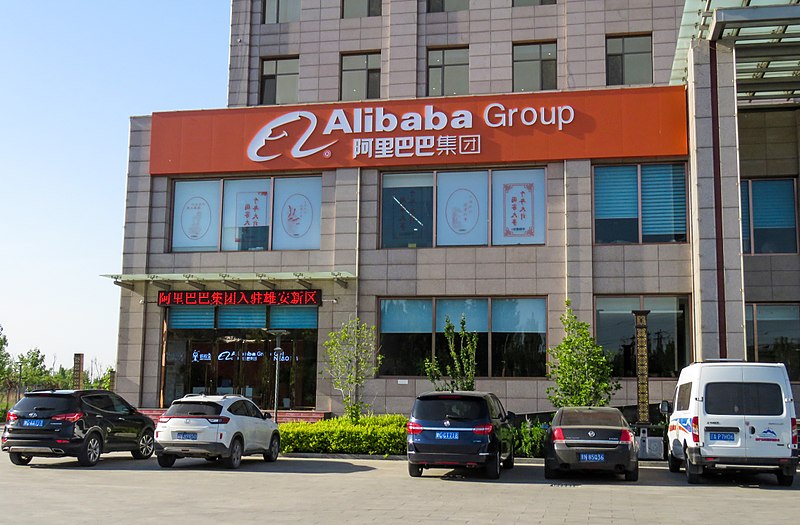Baidu, Alibaba and Tencent Escape Investment Ban
Lawfare’s biweekly roundup of U.S.-China technology policy and national security news.

After weeks of internal U.S. government deliberation, Baidu, Alibaba and Tencent—the Chinese internet giants also known as the “BAT”—will remain available to American investors. The companies are symbols of China’s economic modernity and growth but are also accused of having links to the Chinese military and state surveillance efforts.
On Jan. 7, reports surfaced that Baidu, Alibaba and Tencent might be included on the Trump administration’s growing list of entities off-limits to American investment. A week later, the companies were officially spared.
Recent reporting suggests that the Treasury Department’s concerns over investor sentiment and economic ripple effects outweighed the State Department’s and Pentagon’s worries about Chinese civil-military “fusion.” While American entities owned only a tiny fraction of most of the companies banned so far, U.S.-based investors own one-third of Alibaba and 12 percent of Tencent. U.S. investors have poured $1.4 trillion into those two companies alone. The companies’ exclusion from the list may demarcate the upper bound of domestic dislocation that the Trump administration was willing to weather to exclude Chinese entities from U.S. markets.
The considered action against Baidu, Alibaba and Tencent stemmed from the executive order Trump signed on Nov. 13, 2020, prohibiting American investment in a group of Chinese companies alleged to have inappropriate ties to the Chinese military. Compliance with the order has been confused, in part because of the vague criteria and subsequent Treasury Department memoranda. (Bill Bishop, author of the China-watchers’ newsletter Sinocism, described the administration’s last few weeks of China policy as “a driverless clown car careening into a ditch.”) The effects of the administration’s decision-making process were on display in the New York Stock Exchange’s (NYSE’s) attempt to comply with Treasury guidance. On Dec. 31, the NYSE announced that it would delist Chinese telecom companies’ American depositary receipts (ADRs), one mechanism by which U.S. investors can easily own foreign stocks. The NYSE reversed itself and then, a day later, reversed once more: The exchange finally halted trading of China Mobile, China Telecom and China Unicom on Jan. 11, and U.S. banks delisted their derivatives.
Since November, the list has grown to include some companies without direct military ties but with varying degrees of Chinese Communist Party (CCP) affiliation. Xiaomi, the world’s third-largest mobile phone manufacturer, is among the latest additions to the list of entities from which Americans are required to divest. Xiaomi’s ties to the Chinese military are less well documented than other banned firms’.
A recently drafted executive order would have expanded the criteria to any company under the “control and influence” of the CCP. Given China’s state capitalist system, that would be a rather long list. The order was not signed prior to the expiration of Trump’s term.
On Jan. 9, Beijing issued new guidance to Chinese firms, prohibiting them from complying with foreign sanctions that are “unjustified.” President Biden’s team will have to decide whether to reverse, maintain or expand the Trump administration’s exclusions of Chinese companies.
U.S. Declassifies Strategic Framework for the Indo-Pacific
In its last days, the Trump administration declassified its 2018 “Strategic Framework for the Indo-Pacific,” 21 years ahead of schedule. On Jan. 5, National Security Adviser Robert O’Brien ordered the declassification of the 10-page document, which outlines goals, interests and “lines of effort” to serve American interests in the region.
Publicly released on Jan. 12, the framework posited that top security threats include Beijing’s attempt to “dominate cutting-edge technologies, including artificial intelligence and bio-genetics, and harness them in service of authoritarianism.” According to the framework, “Chinese dominance in these technologies would pose profound challenges to free societies.” (Left unstated is what such “dominance” entails.) Another technological threat noted in the strategy is “China’s proliferation of its digital surveillance, information controls, and influence operations.” In response, the United States adopted the objective of “maintain[ing] American industry’s innovation edge vis-a-vis China.”
According to analysts of Sino-American relations, the U.S. framework was informed and driven in part by the China strategies of U.S. allies and partners, particularly Japan, Australia and India. One expert argues that while the document reveals the existence of a multifaceted U.S. strategy toward China, Trump’s actions often defied the strategy outlined in the document. Commentators view the declassification as an attempt to entrench Trump’s tough-on-China stance, making it more difficult for President Biden to shift course.
In a regular press conference on Jan. 15, a spokesperson for China’s Foreign Ministry called the declassification of the framework an attempt to “smear and contain China and undermine regional peace and stability.”
Chinese Tech Worker Deaths Spark Outcry on Working Conditions
The recent deaths of two employees of Pinduoduo, a Chinese e-commerce giant, sparked widespread public outcry against the cultures of overwork that exist in Chinese technology companies and start-ups. On Dec. 29, a Pinduoduo worker in her 20s collapsed while walking home with colleagues in Urumqi, the capital city of Xinjiang. Pinduoduo later confirmed her death but did not disclose the cause. On Jan. 5, a Pinduoduo worker in Changsha, Hunan province, died by suicide after asking for time off from the company. And a former Alibaba employee self-immolated in protest over unpaid wages. The video of his self-injury has gone viral on Chinese social media in recent days.
Another former Pinduoduo employee claims he was fired after posting a photo of a colleague being carried into an ambulance on Jan. 7. (Pinduoduo disputes the reason for the firing.) The photo and the employee’s associated claims of harsh work requirements went viral on Weibo, reigniting public criticism of the Chinese tech sector’s controversial “996” work culture. The term “996” refers to the tacit expectation that employees work from 9 a.m. to 9 p.m. six days a week. The 996 office schedule has been endorsed by tech billionaires including Alibaba founder Jack Ma and JD.com chief Richard Liu, who view the practice as necessary for survival in a highly competitive industry. But the Chinese public, particularly younger generations, are critical of the culture of overwork.
A hashtag about the Pinduoduo employees’ deaths drew more than 260 million views on Weibo. Chinese state media, rather than cracking down on public backlash against Pinduoduo, has allowed criticism to spread online. China’s state news agency, Xinhua, called for shorter work hours in the country’s tech sector in an editorial on Weibo. The CCP’s flagship newspaper, the People’s Daily, also condemned the excessive 996 overtime practices as unfair to employees.
The criticisms come at a time when China’s technology champions are already under fire for other business practices. Chinese regulators have launched an antitrust probe into one of its biggest e-commerce companies and have passed new financial regulations on firms involved in online lending. Some commentators think the recent employee deaths and associated public outcry give Beijing “timely and very visceral publicity which it can leverage to further its policy objectives.” China’s state-run CCTV published a commentary calling for authorities to increase regulatory oversight of Pinduoduo and other tech companies to protect workers’ rights. The Shanghai Municipal Human Resources and Social Security Bureau has pledged to open an investigation into Pinduoduo’s labor practices over the employee deaths.
After news of the first Pinduoduo employee’s death, the company’s stock fell by 6.1 percent.
Other News
China Sanctions Trump Officials After U.S. Accuses China of Genocide
A day after the Trump administration declared that Chinese actions in Xinjiang amount to “genocide and crimes against humanity,” Beijing struck back with sanctions on individuals including former Trump administration officials. The 28 individuals include former Secretary of State Mike Pompeo, National Security Adviser Robert O’Brien, Deputy National Security Adviser Matt Pottinger, trade adviser Peter Navarro, National Security Adviser John Bolton and Trump campaign adviser Steve Bannon. Those individuals and their families will be banned from traveling to mainland China, as well as Hong Kong and Macau.
In the statement announcing the sanctions, the spokesperson for China’s Ministry of Foreign Affairs alleged that the sanctioned individuals had engaged in a “series of crazy moves which have gravely interfered in China’s internal affairs, undermined China’s interests, offended the Chinese people, and seriously disrupted China-U.S. relations.”
Companies affiliated with sanctioned individuals are also “restricted from doing business” in China, according to the ministry’s statement.
Patents Show Chinese Tech Companies’ Complicity in Uighur Profiling
On Jan. 12, IPVM, the organization that originally reported on Huawei and Megvii’s collaboration to create facial recognition software that could identify Uighurs, unveiled new evidence of Chinese tech companies’ progress toward automating ethnic profiling. IPVM obtained a July 2018 patent application filed jointly by Huawei and the Chinese Academy of Sciences that claims to use facial recognition to automatically identify a target pedestrian’s race. The example races listed were “Han” and “Uighur.” In response, Huawei stated: “Identifying individuals’ race was never part of the research and development project. It should never have become part of the application.”
IPVM also discovered other facial recognition patents held by Megvii, SenseTime, Alibaba and Baidu. According to marketing material uncovered by IPVM, Alibaba’s Cloud group offers “Uighur-Recognition-as-a-Service” but deleted references to the capability soon after IPVM and the New York Times reached out for comment. Many of the companies offered apologies, clarifications or retractions of the references to Uighur and other ethnic profiling capabilities in their patents. SenseTime stated that the reference to Uighurs in its patent was “regrettable” and the company plans to update the patent “at the next available opportunity.”
These revelations come as Megvii plans its Shanghai IPO. Nearly one year ago, Megvii’s attempt to list in Hong Kong was scuttled by its inclusion on the Trump administration’s Entity List.
Jack Ma Returns
Jack Ma, Alibaba founder and formerly China’s wealthiest person, made his first public appearance in months on Jan. 20. During an event sponsored by the Jack Ma Foundation, he spoke by video to Chinese teachers in rural areas.
Before Wednesday’s video appearance, Ma was last seen publicly in October 2020 at a business summit in Shanghai. Ma made comments at the summit criticizing Chinese regulators for stifling innovation in the technology sector, leading regulators to cancel the planned initial public offering of his financial technology firm, Ant Group. In December, Chinese regulators announced antitrust investigations into Ma’s other tech giant, Alibaba.
Ma had not been seen since the summit in October, leading to widespread speculation about his whereabouts. He was replaced as a judge in the final episode of a game show filmed in November 2020, though an Alibaba spokesperson insisted the change was due to a scheduling conflict.
Reports indicated that Ma hadn’t been taken into custody by Chinese authorities but was instead “laying low” in Hangzhou, where Alibaba’s headquarters are located. Commentators note that regardless of whether Ma had been detained or was voluntarily avoiding the public eye, “either one is a version of the Party reasserting its absolute power.” Other Chinese CEOs and powerful executives have been detained in recent years for challenging the CCP.
Alibaba’s stock surged 9 percent on Wednesday after the news of Jack Ma’s video reappearance became public.
Commentary
Alexa Lee writes for New America’s Cybersecurity Initiative on China’s drafted Personal Information Protection Law, Beijing’s answer to the EU’s General Data Protection Regulation, and how it would impact data privacy in China and international businesses if enacted.
President Biden named Tarun Chhabra, a senior fellow at Georgetown’s Center for Security and Emerging Technology, as the senior director for technology and national security on his National Security Council. Chhabra co-authored an op-ed for Foreign Affairs in February 2020 advocating for a more hawkish view of China among progressives. In October 2019, the Center on National Security conducted a longer interview on Chhabra’s views toward China.
President Biden plans to appoint Kurt Campbell, a veteran China hand, as his China czar on the National Security Council. Campbell will oversee a portfolio of issues related to China with the official title “Indo-Pacific coordinator” and will report directly to National Security Adviser Jake Sullivan. Campbell co-authored a piece on China strategy for Foreign Affairs with Rush Doshi, the director of the China Strategy Initiative at the Brookings Institution and a fellow at the Paul Tsai China Center at Yale Law School, who is likely to be appointed to the National Security Council as a China director.
The United States’s ban on cotton and tomatoes from Xinjiang comes in the wake of reports of forced labor in the autonomous region. One China scholar believes it is safe to assume that all cotton from Xinjiang (20 percent of the world’s supply) is contaminated by forced labor. Commentators have compared the situation in Xinjiang to American slavery, and then-U.S. Secretary of State Mike Pompeo labeled it a “genocide.”
As World Health Organization (WHO) officials visit Wuhan to investigate the origins of the coronavirus, Holman W. Jenkins Jr., writing for the Wall Street Journal, expresses skepticism that their mission will be successful. China recently barred two WHO-affiliated scientists from entry.
The New York Times collected Chinese media and Weibo users’ views on the riots at the U.S. Capitol and subsequent bans on President Trump’s social media accounts.
Jeet Heer writes for The Nation on the rise of China hawks within the Democratic Party, their potential impact on the incoming Biden administration’s China policy, and a third way between cooperation and competition.
Xiaowei Wang gives an interview to the MIT Tech Review on her new book about the impact of technology in rural China, titled “Blockchain Chicken Farm.”
Brendan Thomas-Noone writes for Brookings’s Tech Stream blog on Cold War lessons that can be applied to U.S.-China tech competition.
Peter Cowhey and Susan Shirk co-author an op-ed in the Wall Street Journal on the policy mistakes that could follow from overestimating China’s technological prowess in 5G and artificial intelligence.
China’s economy, particularly its industrial production, rebounded quickly after last spring’s coronavirus-related shutdown. The Chinese economy was the only major national economy to experience positive growth in 2020. At the same time, China doubled its current account surplus, which is now the world’s largest; meanwhile, the United States holds the world’s largest current account deficit.
Jude Blanchette writes for China Leadership Monitor on China’s new state capitalism.
Yangyang Cheng inquires whether Chinese “experts” must speak Chinese.
Maria Repnikova writes in the New York Times on the impact of chaotic U.S. political events on the United States’ reputation among the Chinese and Russian publics.
Twitter’s suspension of President Trump’s account prompts Hu Xijin, editor-in-chief of Chinese state media outlet The Global Times, to note that “freedom of speech does indeed have boundaries in every society.”





